Normative Webs, Thomas Reid and Liturgy

Interview by Richard Marshall.
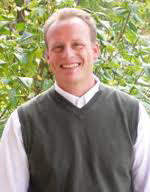
'The intuitive idea, which The Normative Web develops, is that moral and epistemic facts stand or fall together. '
' If moral facts don’t exist, then neither do epistemic ones. (I assume here that these facts are as realists understand them.) The argument’s next premise is that epistemic facts exist. Some beliefs and practices of inquiry are irrational, or justified, or supported by epistemic reasons. The argument for this claim is that, when we consider the price tag for going antirealist about the epistemic domain—by, say, denying that any beliefs could be irrational or justified—we see that it’s very high.'
'Roughly put, the normative theory says that what explains (in part) the fact that your uttering a sentence generates (say) an assertion is that you have thereby altered your normative position with respect to your audience. In ordinary conditions, your audience (among other things) has the right to hold you accountable if things are not as you present them (say, because what you claim is false or you don’t believe what you say).'
'My line is that Reid embraces what I call an agency centered approach to ethics. According to this approach, we can’t really make much progress in ethical theorizing without committing ourselves to and, ultimately developing, particular understandings of agency.'
'My view is that Reid provides a striking alternative to some of the more entrenched options in philosophy: hardcore rationalism, Humean empiricism, Kantianism, and pragmatism. In a cumbersome phrase, Reid’s view is “realist non-classical foundationalism.”'
'Almost nothing has been written on religious practices and what it’s like to be a religiously committed person “on the ground.” Second, my own religious tradition of Eastern Orthodox Christianity is one in which religious practices loom large; the emphasis is on “ortho-praxy.”'
'There I say that I wouldn’t describe my attitude toward the central claims made by Christianity as belief. It’s not that I disbelieve these claims. But it strikes me that faith is the attitude that the tradition calls for, and it seems to me that faith needn’t involve belief.'

(Art: Paula Rego)
Terence Cuneo's research focuses on metaethics, early modern philosophy, and philosophy of religion. He has strong interests in epistemology and political philosophy as well. He is presently plugging away at two book projects. The first, which is co-authored with John Bengson (University of Wisconsin, Madison) and Russ Shafer-Landau (University of Wisconsin, Madison), develops a version of moral nonnaturalism. It’s entitled Understanding Morality (Oxford, forthcoming). The second is a short book on Thomas Reid’s ethical theory. It’s entitled Active Ethical Agency (Cambridge, forthcoming). Here he firstly discusses moral realism, links between epistemology and morality, what's wrong with ethical nihilism, norms and necessary conditions of speech, why he endorses non-naturalism regarding morals, whether moral realists should be causalists; then he moves on to Thomas Reid and the agency centered approach, why Reid is more important than has traditionally been supposed, Reid's rejection of Cartesianism and Humeanism, how Reid woke both Kant and Hume from their dogmatic slumbers, Reid and freewill; and then he ends by discussing the role of knowing how to perform certain liturgical rites , the distinction between knowing that and knowing how in this context, and whether religion itself is inaccessible.
3:AM: What made you become a philosopher?
Terence Cuneo: In my second year as an undergraduate, I took a class in political philosophy with Georgia Warnke. At that point, I knew almost nothing about philosophy. But it was love at first sight when I encountered it in the classroom.
I also had no sense of what a career in philosophy would involve. What I did know is that I wasn’t interested in business. I also thought that continuing with philosophy looked a lot more interesting than going to law school. So, I simply kept at it. The love remains to this day.
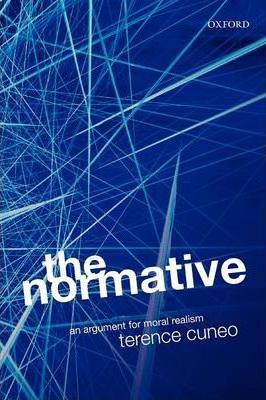
3:AM: You’re a moral realist and one of the motivations for this position (at the very least) is that you don’t see how to make a distinction between a realist position about moral truths and one about aesthetic or epistemic truths despite the fact that many philosophers assume you can, or at least, pass over the links in silence. Is that right? Could you begin then by sketching what you mean by saying that these truths are connected in ways that mean that if one is not realist, the others aren’t either – and why philosophers haven’t been very up-front about this?
TC: It may be helpful to begin with a bit of sociology. When I was working on my first book, The Normative Web(Oxford, 2007), philosophers who worked in metaethics weren’t paying much attention to whether their questions had close parallels in other normative domains, such as epistemology. And philosophers who worked in epistemology weren’t paying a lot of attention to whether their questions had close parallels in metaethics. I am not sure why this was. Anyway, it seemed to me that these domains had enough in common that it would be fruitful to theorize with them both in mind. (I should probably mention that a lot has changed in the last ten to fifteen years. “Metaepistemology” is now very much a thing.)
Metaethicists ask questions such as: Are there any objective moral facts? What would they be like? How could we know them? Would they explain anything in the world? And so on. My thought was to ask similar questions about epistemic facts (among others) in order to see what turns up. In the back of my mind was the suspicion that going antirealist about a domain such as morality would probably require going antirealist about epistemology, and that there were distinct and deep challenges facing such a view.
The intuitive idea, which The Normative Web develops, is that moral and epistemic facts stand or fall together. Stated a little more precisely, the idea is that putative moral and epistemic facts share features of a kind such that, were those features to imply (or provide sufficient reason to hold) that moral facts don’t exist, then they would also imply (or provide sufficient reason to believe) that epistemic facts don’t exist. The features I have in mind are things like: supervening on merely descriptive facts, providing categorical reasons to behave in certain ways, failing to play explanatory roles of certain kinds, and so forth—the sorts of considerations to which moral antirealists advert when objecting to moral realism. So, suppose you’re skeptical about there being moral facts because you just can’t imagine that the world would contain any categorical moral reasons. The argument implies that you should be similarly skeptical about epistemic facts.
3:AM: You argue that if moral facts don’t exist then neither do epistemic ones to moral realism is true. Can you sketch for us your argument and how you defend the parallel?
TC:Well, my answer to the previous question states the primary rationale for the following central premise of the argument: if moral facts don’t exist, then neither do epistemic ones. (I assume here that these facts are as realists understand them.) The argument’s next premise is that epistemic facts exist. Some beliefs and practices of inquiry are irrational, or justified, or supported by epistemic reasons. The argument for this claim is that, when we consider the price tag for going antirealist about the epistemic domain—by, say, denying that any beliefs could be irrational or justified—we see that it’s very high. (More on that in a moment.) The argument concludes that moral facts exist.
One reason that it seemed worthwhile to develop this argument is that over the years philosophers have developed very few positive arguments for moral realism. So, it seemed like doing so could contribute to the discussion.
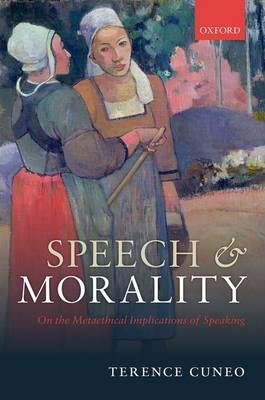
3:AM: How do you argue against the epistemic nihilist who denies epistemic truths and what about epistemic expressivism – why doesn’t that work for you either?
TC:Roughly, my thinking regarding epistemic nihilism is that it implies a very radical form of skepticism according to which we have no reason to believe anything, including epistemic nihilism itself. Some nihilists, such as Bart Streumer, accept this implication. Other nihilists, such as Jonas Olson, try to finesse things more. They (and others) have said some interesting things in favor of their approaches. My thinking regarding these error theoretic responses has several strands. But one thing I’d say is that the arguments for accepting scorched-earth epistemic skepticism of this variety had better bereally good. These arguments do not, however, strike me as anywhere near that good. Another thing I’d say is that, while there are things for epistemic nihilists to say in response, the methodology that they employ strikes me as pretty deeply problematic for a variety of reasons. I worry that, in some cases, when they’ve completed their reply to the argument, their view collapses into a version of moral reductionism and, so, isn’t nihilist (or error theoretic) at all. My book Speech and Morality(Oxford, 2014, ch. 4) and an essay of mine “Destabilizing the Error Theory” get into some of the issues. (This essay and other work is available at my website.
Epistemic expressivism is more difficult to evaluate because (sorry expressivists!) the view strikes me as a moving target. But, very roughly, my worry is that, in its paradigmatic form, expressivism maintains that normative judgments do not have normative representational content: that is, they don’t represent normative reality. Expressivists also tend to hold that, while there are normative facts, they’re of the deflated variety, being mere “shadows” of normative thought and discourse that do not “answer” to normative judgments. These facts don’t explain anything. But now it looks as if expressivists have to do epistemology with two hands tied behind their backs: no normative representational content and no normative facts that answer to whatever content that normative judgments have. But when one looks at epistemic merits and demerits (such as justification, warrant, and knowledge), they bear intimate relations with representing the world aright. For example, it certainly looks as if judgments bear these merits because (inter alia) they’re likely to represent reality aright or that an agent has done a good job of putting herself in a position to represent reality aright. This makes it really tricky to say what, according to expressivism, it could be for a normative judgment to be (say) warranted (since they’re not in the business of representing normative reality) and what could explain their being warranted (since normative reality, in their view, couldn’t help explain it).
I concede that expressivists have got a line on what it is to sayor thinkthat a normative judgment is (say) warranted. But, as I see things, that’s not the question before us. And I don’t want to elide metasemantic issues (that is, roughly, issues of what it is to say or think something) with ontological ones, or substitute metasemantic ones for ontological ones. At least I haven’t seen any compelling reasons to do so.
3:AM: How are your arguments for moral realism bolstered by norms that are related to necessary conditions of speech? It seems on the face of it that a moral fact relies on a piece of behaviour – it looks at first blush like either if we didn’t speak moral facts would disappear or if there were no moral facts we couldn’t speak, neither of which look right?
TC:Actually, I endorse the conditional stated in the last disjunct of your final question! That is, I hold that, if there were no moral facts, then we could not speak. But (I say) we do speak. So, there are moral facts.
These are the primary conclusions of my Speech and Morality(Oxford, 2014). The argument states that speaking just is the performance of illocutionary or speech acts, such as asserting, commanding, and promising. But a central question that faces speech act theorists is what explains the intimate connection between so-called locutionary acts, such as uttering and writing sentences, and illocutionary acts, such as asserting and promising. It’s clear that they’re not identical and that the performance of the former doesn’t imply the performance of the latter. But what, then, is the glue that binds them?
The answer I develop runs through what I call the normative theory of speech. Roughly put, the normative theory says that what explains (in part) the fact that your uttering a sentence generates (say) an assertion is that you have thereby altered your normative position with respect to your audience. In ordinary conditions, your audience (among other things) has the right to hold you accountable if things are not as you present them (say, because what you claim is false or you don’t believe what you say). You, in turn, have laid yourself open to appropriate correction if things are not as you present them. I then argue that a range of these normative features, which help to explain the generation of illocutionary acts, are moral. If that’s right, some moral features aren’t generated by speech; they explain how we could speak. What is more, these moral features are doing really important (non-causal) explanatory work: they explain (in part) why locutionary acts generate illocutionary ones. If so, these facts are not of the deflated (or ultra-lightweight) variety, as many expressivists seem to hold, since so-called deflated facts don’t explain anything. And we can’t explain why things have these normative features by way of speech itself, since that would presuppose the existence of what’s really doing the explaining. So, I conclude constructivist views are also in trouble. The conclusion I reach is that there is really good reason to endorse moral realism, as realism has a view according to which moral features are well-suited to do the requisite explanatory work.
As I say in the introduction to Speech and Morality, the argument is controversial at nearly every turn. But such is the fate of all arguments for substantive positions. The argument has some parallels to the one offered in The Normative Webinsofar its animated by the conviction that we should do our normative theorizing with our focus on multiple normative domains.
3:AM: Is your position a nonnaturalist one – what do you take nonnaturalism to mean in this context and is it a better position for the moral realist than naturalism?
TC:While neither The Normative Webnor Speech and Moralitydevelops and defends moral non-naturalism as such, it’s the position I endorse. John Bengson (University of Wisconsin, Madison), Russ Shafer-Landau (University of Wisconsin, Madison) and I have been working hard on a triple-authored book entitled Understanding Morality(Oxford, forthcoming). The book’s task is to develop, with as much care and sophistication as we can muster, a version of thoroughgoing moral nonnaturalism. I believe the book is distinctive in several ways. It pays a lot more attention to methodology in metaethics than is typical (and, indeed, develops a method for theorizing). And it is largely free of polemicizing in this respect: it makes virtually no effort to establish why rival metaethical views are unsatisfactory. Instead, its aim is to positively develop moral nonnaturalism in order to see whether and how it can explain what needs explaining and handle the challenges it faces. As we see things, that’s the order of the day.
3:AM: Why should moral realists be ‘causalists’, which I take it is the position that moral facts are causally efficacious? Why are Robert Audi and Jaegwon Kim wrong on objecting to this?
TC:While I have said a word in favor of causalism (“Moral Facts as Configuring Causes,” Pacific Philosophical Quarterly, 2006), I’m unsure whether it’s the correct position. I think it’s plausible that some such facts are causally efficacious—especially the instantiation of the virtues. And, contrary to some, I think causalism is an available option for nonnaturalists. But the issues here are very difficult, since we don’t really understand causality all that well.
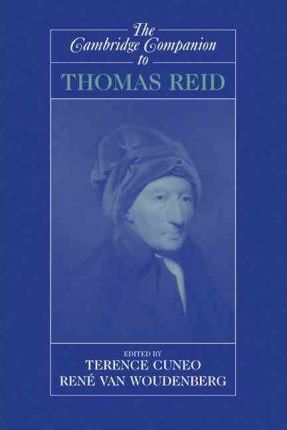
3:AM: You’re an expert on the philosopher Thomas Reid– who is often contrasted as a rationalist with his contemporary Francis Hutcheson, a sentimentalist. Yet you argue that the labelling overlooks the things Reid has in common with the sentimentalists, and also the rationality involved in Hutcheson’s position. Can you sketch for us how best to understand Reid in respect of this, perhaps by looking at how Reid responded to Hume’s problem concerning moral judgement and the will which caused real problems for the moral intuitionists and sentimentalists. What was the problem, why were the intuitionists in trouble because of it and how did Reid’s approach help the intuitionists ad sentimentalists?
TC:My line is that Reid embraces what I call an agency centeredapproach to ethics. According to this approach, we can’t really make much progress in ethical theorizing without committing ourselves to and, ultimately developing, particular understandings of agency. Under this view, we shouldn’t approach ethical theorizing like the rational intuitionists such as Samuel Clarke and John Balguy did by defending the “eternal and immutable” character of moral obligation. Nor should we approach ethical theorizing as the sentimentalists like Hutcheson and Hume did by focusing on what in fact elicits moral approbation and what moves us to action. Instead, Reid’s agency centered approach states that we need to ask what ethical reality must be like if we can respond to it, commit ourselves to being regulated by it, and be rational in doing so. And it is to ask what agency must be like it if we are to make sense of ascriptions of moral accountability and the character of the reactive attitudes, such as resentment and gratitude.
Reid’s response to Hume regarding the will is both elusive and complicated. It’s elusive because Reid’s engagement with Hume on this issue is indirect; one has to piece together the arc of Reid’s response. Unlike so many other of Reid’s discussions, he doesn’t explicitly present Hume’s argument and then offer his response. Reid’s reply is complicated because there appear to be two different ways of reading Reid on the issue. According to the first interpretation, Reid is working with a radically different picture of action. Under this picture, motives are not mental states that cause us to act. Rather, they are the ends for which we act, and agents are causes (more on this below). This picture has Reid rejecting nearly the entire framework within which Hume works. According to the second interpretation, Reid concedes that mental states such as sentiment play a (broadly) causal role in the production of action. He holds that, due to the constitution of our nature, moral judgments of certain kinds “are not dry and unaffecting” but involve or imply being motivated. No rationalists at that time were saying things like that. So, under this reading, Reid borrows quite a bit from the sentimentalists.
A short book of mine, tentatively titled Active Ethical Agency: Thomas Reid’s Ethical Theorythat’s forthcoming (Cambridge), develops these themes.
3:AM: You think Reid was a much more important philosopher than he has been held to be and you think this because you think he offered an alternative response to the Cartesian rationalists and the Humean empiricists regarding philosophy’s relationship to the progress and results of the new science than that given by Kant, don’t you? Reid didn’t seem to worry about lack of progress in philosophy nor its failure to keep up with science. So what was Reid’s view about the matter – why didn’t he think there was a crisis for philosophy and why had he so much optimism for it?
TC:Reid strikes me as a really important voice in the tradition whose contributions (at least in recent history) have tended to be overlooked. It’s relatively rare, say, to find him featured in an Early Modern survey class. But, in my view, he’s an exceptionally lucid and imaginative thinker with good philosophical instincts. For those curious about Reid, I think James Van Cleve’s Problems from Reidis a masterful engagement with Reid’s work.
My view is that Reid provides a striking alternative to some of the more entrenched options in philosophy: hardcore rationalism, Humean empiricism, Kantianism, and pragmatism. In a cumbersome phrase, Reid’s view is “realist non-classical foundationalism.” He’s a realist about the external world, and also (probably) a direct realist about perception. These commitments distinguish him from, well, probably everybody in the early modern crowd. This is coupled with giving up on the ideal of certainty in epistemology, which again was unique in his day. Instead, Reid develops a positive view that seems to blend elements of a proper functionalist epistemology with evidentialist commitments.
Of all the moderns, Reid was by far and away the most expert in the sciences. He came from a family of distinguished scientists and kept abreast of developments in areas such as physics, optics, and chemistry. While he was fully aware of how quickly the sciences were progressing relative to philosophy, this seemed not to have made him particularly anxious about the state of philosophy. This might be because he thought philosophy was not in its infancy in the way the natural sciences were. That would explain the different growth trajectories. It might also be because he was relatively confident that his philosophical methodology shows us to the way forward.
3:AM: So how did his attack on the use of analogy divest him of any commitment to Cartesianism and Humeanism?
TC:In my view, Reid’s rejection of Cartesianism and Humeanism has a variety of strands. One important strand is Reid’s rejection of the so-called way of ideas, which he claims both Descartes and Hume accept. According to the way of ideas (at least in its paradigmatic Lockean form), we never directly apprehend the world in perception. Instead, we only directly apprehend “ideas” or sense-data, which are imagistic mental states that represent the world by mirroring it. Reid works very hard to dislodge this way of thinking about perception. He thinks it engenders skepticism, is empirically inadequate, and unmotivated. Part of the work for Reid consists in diagnosing why others were led to think that we only apprehend ideas. One thing that Reid said is that both Descartes and Hume were misled by some inapt analogical thinking. In Reid’s view, for example, Hume works with a model of the mind that is the Newtonian universe in miniature: the Humean mind is a container (space) inhabited by impressions and ideas (atoms) bound together by laws of contiguity, resemblance, and causation (Newtonian laws). Reid thinks this is not the way to be a good Newtonian.
3:AM: Rather than take the Kantian step of critiquing reason what did Reid propose as the way to progress in philosophy – introspection played a big role didn’t it?
TC: Hume woke both Reid and Kant from their slumbers. But once they were roused, they reacted differently. I take Kant to have been more impressed by Humean skeptical arguments than Reid was. Under a natural interpretation, Kant holds that unless we re-think the relation of mind and world along broadly idealist lines, Hume wins. Reid’s response is different. First, he works to undermine the Humean arguments, arguing that the Humean argument from induction doesn’t yield skeptical results, which Kant (under a prominent interpretation) thinks it does. Second, while a staunch Newtonian, Reid understands the character of natural laws very differently from Kant. This difference proves to be important, as it implies that Reid (unlike Kant) is not worried about how to account for scientific knowledge of natural laws. It is inductive and not a species of the synthetic a priori. So, there’s no Reidian worry about how to accommodate and explain synthetic a priori knowledge, which is Kant’s primary project.
Reid’s methodology is broadly “commonsensical.” I put the term in scare quotes because Reid’s understanding of common sense and his methodology is considerably more interesting and sophisticated than the term “common sense” might lead us to believe. I think Nick Wolterstorff’s work on Reid on common sense is super illuminating (“Reid on Common sense” in The Cambridge Companion to Thomas Reid). Yes, like all the moderns, introspection plays a fairly significant role in Reid’s methodology. Their tools were limited. But, interestingly, I think it plays a much less prominent role in Reid’s thinking than it does in Hume’s.
3:AM: How did his view on freewill work, and how did it differ from Kant’s?
TC:The exact character of Reid’s view of free will is a matter of some dispute. The elements that seem clear are these. First, Reid rejects determinism. So, in this respect, he differs from both Hume and Kant; he sees no need to try to reconcile freedom with determinism. Second, Reid thinks that freedom requires the ability to choose otherwise than one did. So, Reid rejects the compatibilist understanding of freedom, which says that sufficient for being free is that one would act differently if one had chosen differently. Third, Reid thinks that free choices must be up to the agent. His way of vindicating this intuitive idea is to claim that the agent is the cause of acts of will. As I see it, this is the darkest part of Reid’s view. Many interpret Reid to hold an agent causal view similar to the ones developed by Richard Taylor and Chisholm according to which there is some sui generis agent causal relation that differs from (what we now call) efficient causal relations.
I think this is probably not Reid’s view. The closest parallel to Reid’s position, I think, is the one defended by E. J. Lowe in Personal Agency. It’s a view according to which an agent is a cause only in the sense of being the seat or ground of a constellation of networked practical capacities. These capacities include the ability to act for the sake of reasons. They also includes what Reid calls “active power,” which I understand to be a spontaneous power whose exertions are uncaused. In the paradigm case, exertions of active power are in response to reasons. So, Reid’s view, under this reading, is a blend of so-called teleological accounts of action explanation (which explain action in terms of the ends for the sake of which we act) and causalist accounts of action explanation (which claim that action explanation is causal). My colleague Randall Harp and I have developed this interpretation of Reid in some work that is forthcoming (“Reid’s Regress,” Philosophical Quarterly).
There are certainly parallels between Reid’s and Kant’s approach. Both reject compatibilism. Both think that having robust freedom is necessary for responsibility. But, as I indicated above, Reid rejects determinism. So, Reid finds no need to say Kantian things like “we’re empirically determined but noumenally free.” I would add that Reid says a lot more about the character of agency, will, and action than Kant does, offering a positive account of motives and what he calls active power.
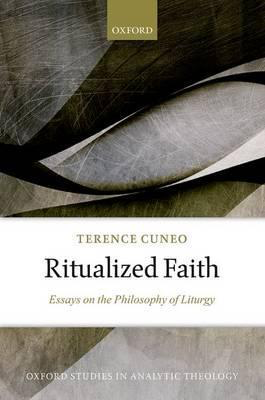
3:AM: Another area of interest you have is that of the role of knowing how to perform certain liturgical ritescan contribute to knowledge of God. Can you sketch your thinking here – what is it about the liturgical rituals that contributes to knowing God? Is it by directing us to our collective situation and then out to out-groups, allowing people to do regularly and repeatably these more difficult type-acts required by God? I guess my general question is; what is liturgical activity for you, and how does it have an epistemological role? Wouldn’t that make singing part of epistemology if liturgically required?
TC:A bit of background might help here. Developments in contemporary philosophy of religion have shaped my interests and philosophical trajectory. My teacher (and mentor), Nick Wolterstorff, is primarily responsible for that. But over the years, two things have struck me.
First, contemporary philosophy of religion has occupied itself almost entirely with issues of most interest to metaphysicians and epistemologists: Does God exist? What’s God nature like? How could religious beliefs be rational? What should theists make of evil? Etc. Almost nothing has been written on religious practices and what it’s like to be a religiously committed person “on the ground.” Second, my own religious tradition of Eastern Orthodox Christianity is one in which religious practices loom large; the emphasis is on “ortho-praxy.” I’ve worried that work in contemporary philosophy of religion doesn’t really intersect with what I and many others experience on a weekly basis as a participant in this (and other) religious tradition(s). And yet these practices seemed to me rich and puzzling enough to call for careful philosophical reflection.
So I began to write on religious ritual, primarily as it takes shape in Eastern Orthodoxy. Much of my work on this topic is collected in my book Ritualized Faith: Essays on the Philosophy of Liturgy(Oxford, 2016). As far as philosophy (and even philosophy of religion) goes, it’s a book that’s far off the beaten path.
Some of the questions that concern me are ethical: what is the ethical vision presupposed by and expressed in liturgical action? And are there good moral reasons to engage in these rites, even if one is unsure whether what they say or presuppose about God is true? Other questions are broadly interpretive: What is the role of art and icons in Eastern Orthodoxy? What about liturgical rites in which its participants speak in the voice of characters such as Adam, Jesus, or Joseph? What’s going on there: role-play? Furthermore, what is the role of the body in religious rites? Why would it matter that these rites involve so much bodily action? What is going on when the tradition venerates saints? And so on. I’ve found the topics fascinating.
The thinking when it comes to know-how is that “ortho-praxic” traditions such as Eastern Christianityare largely concerned to develop know-how. The know-how concerns how to engage God, how to engage the world in ways that are expressive of and faithful to one’s religious commitments, and so forth.
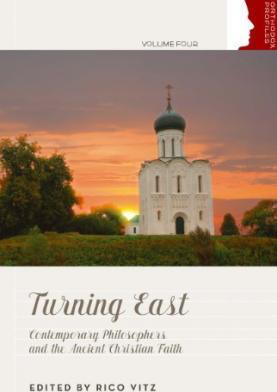
3:AM: How do you answer the push-back that liturgical ‘knowing how’ collapses into propositional ‘knowing that’, as Stanley and Williamson, for example, have argued?
TC:On this matter, I punt. I appeal to those who’ve done the hard work on know-how, such as my co-author on metaethical matters, John Bengson. (See Bengson and Moffat’s “Nonpropositional Intellectualism” in their co-edited Knowing How).
3:AM: And religion itself, is it inaccessible – you pose this question and point to the difficulty of being a religious enquirer because of two seemingly incompatible demands: ‘external epistemic norms’ on the one hand and ‘internal religious norms’ on the other. So what are these two types of norms, why do they seem to pose an insurmountable challenge for the religious enquirer, and how do you propose we handle this?
TC:The final chapter of Ritualized Faithis autobiographical. There I say that I wouldn’t describe my attitude toward the central claims made by Christianity as belief. It’s not that I disbelieve these claims. But it strikes me that faith is the attitude that the tradition calls for, and it seems to me that faith needn’t involve belief. (Here I recommend the work of Dan Howard-Snyder and Dan McKaughan.) I’ve also found that fundamental to the religious way of life is openness to the experience of God or the teachings of the tradition. In my essay “The Inaccessibility of Religion Problem” (Ergo2017), I argue that such openness can help address a problem for religious inquirers. These are people who find themselves attracted to religious ways of life, often for broadly practical reasons, but also find themselves unable to participate in these traditions given their lack of belief. On the one hand, these people are subject to epistemic norms that require us not to believe propositions that aren’t in good epistemic standing. On the other hand, religious traditions seem to call for such attitudes (and seem to rule out pretense as a legitimate mode of religious engagement in which you pretend to believe certain things). By looking at the liturgical texts themselves, I argue that traditions such as Eastern Orthodox enjoin us to develop the attitude I call receptivity to the experience of God. This attitude, I contend, is not subject to the same epistemic norms as belief and it’s also religiously kosher. So, it’s an attitude available to religious inquirers that might otherwise find themselves on the outside of religious ways of life.
3:AM: And finally, for the readers here at 3:AM, are there five books other than your own, that you could recommend that will take us further into your philosophical world?
TC:I found this the most difficult question to answer! Here are the ones that come to mind:
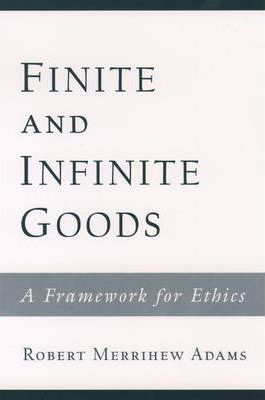
Robert Adams, Finite and Infinite Goods: While I disagree with some of Bob’s central claims, this book’s scope, imagination, and quality is awesome.

Philippa Foot, Virtues and Vices: There is something about how Foot does philosophy that resonates with me and continues to draw me in.
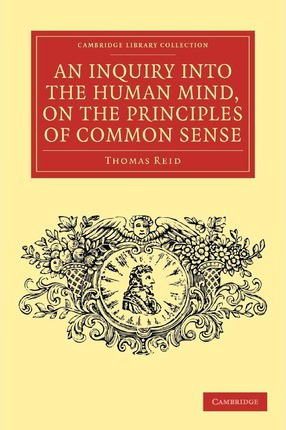
Thomas Reid, An Inquiry Concerning the Principles of Common sense: Honestly, I didn’t know which of Reid’s books to list, but (I think) this is probably his best.
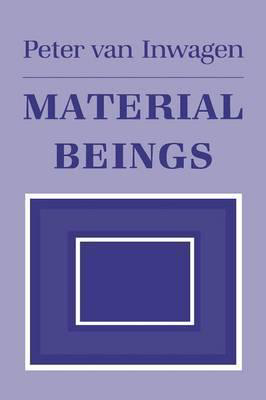
Peter van Inwagen, Material Beings: The metaphysics of material composition is not something that I spend much time thinking about. The fact that this book mesmerized me is a tribute to how wonderful it is.
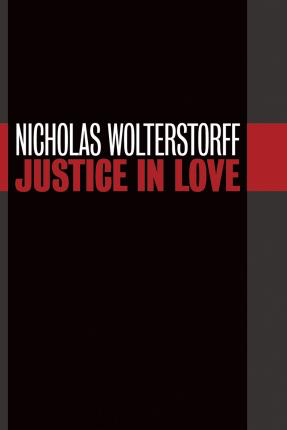
Nicholas Wolterstorff, Justice in Love: As with Reid’s books, I didn’t know which of Nick’s (many) books to list. I settled on this because it vividly displays Nick’s skill at providing remarkably insightful readings of philosophical and scriptural texts while developing a novel systematic ethical view.
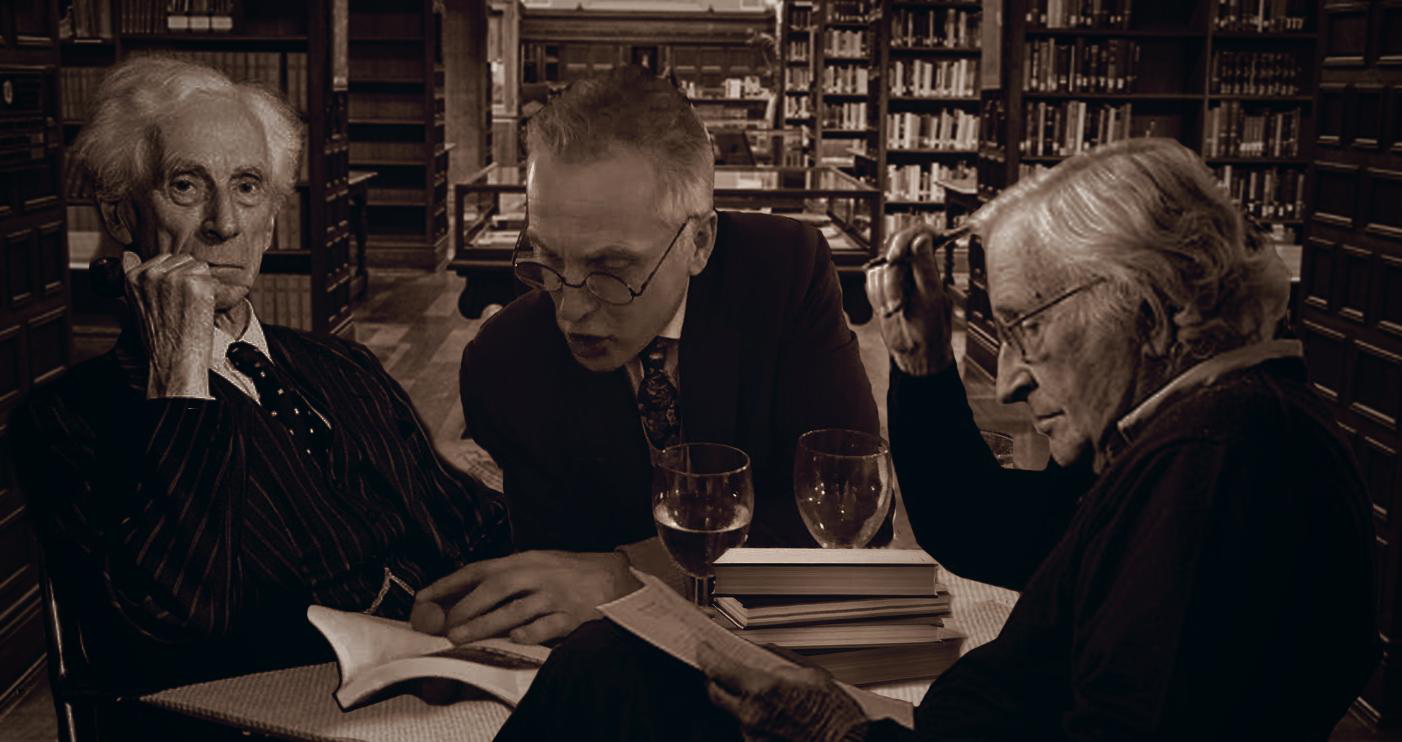
ABOUT THE INTERVIEWER
Richard Marshall is biding his time.
Buy his new book here or his first book here to keep him biding!
End TimesSeries: the first 302